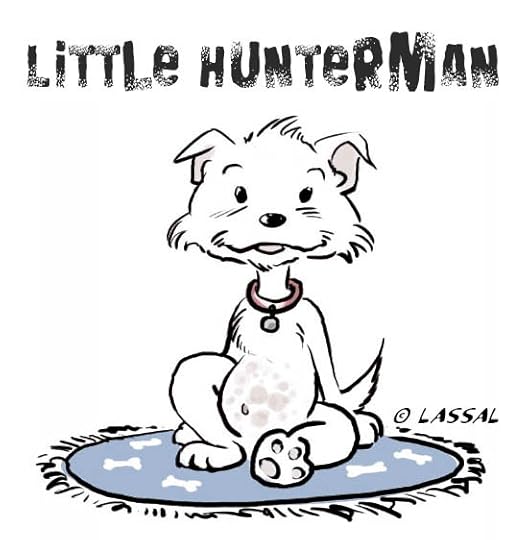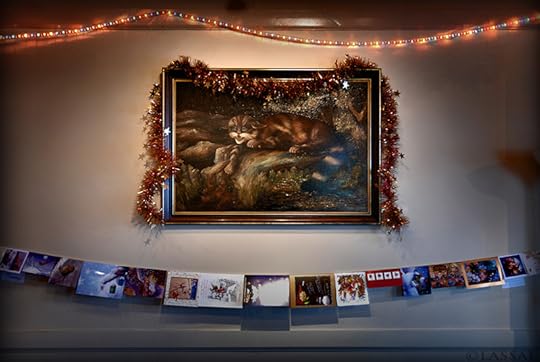Lassal's Blog, page 2
June 21, 2013
June 18, 2013
Nomination for The German Prize for Civic Engagement 2013
The German Prize for Civic Engagement aims at strengthening the recognition of citizen engagement in Germany, as well as increasing its visibility.
I am happy to announce that I was nominated for Fingeralphabet.org.
While I hope that the free material on Fingeralphabet.org and the additional material published by LegendaryMedia will be able to offer help in many ways, they unfortunately can only accomplish this if people know about their existence.
Given that I cannot come up with a traditional worldwide advertising campaign for this project, Fingeralphabet.org relies totally on word-of-mouth.
Word-of-mouth is one of the reasons why I am so very happy about the nomination for the German Prize for Civic Engagement 2013. I hope that the nomination will spread the word and more awareness throughout the world, making more people take notice of the available material.
In case you have any question at all, I’d be glad to answer whatever I can if you write me via contact(at)fingeralphabet.org. I would also welcome you on Facebook or Google or on any other platform that you can find listed here.
February 20, 2013
Instead of Spreading Myself Thin …
… I decided to step back from this blog for a couple of weeks.
It is unfortunate, because I am looking forward to start my series of free storyboarding tutorials asap. But I rather be able to concentrate on them a bit and this would not be possible right now. Currently, my energy and time is being spent setting up a huge international book series.
Still, I cannot wait to share my tutorials with those of you who are interested in such things. Also because with this topic I would finally be able to address not only illustrators, but also photographers and videographers and … everybody who is working on image-sequences of any kind. It is a totally cool topic with lots of things that are important to know – even, and especially, if you want to go against the rules.
As I have been working on all fields in and around of storyboarding for many, many years I think it is time to start passing my knowledge on, especially now that my attention is shifting a bit towards my pro bono work.
This blog will be dedicated to the free tutorials and to how to make your ideas work in photography, film, illustrations … whatever. At the end it does not matter if you are working on documentaries, animations, commercials, movies or even books.
Just come back here and have a look once in a while, to see if I have started. Or simply subscribe to the mailing-list to be informed automatically by me once I start.
See you then!
Have fun!
January 16, 2013
How to Approve your Fiction for Science?
Do you write fiction? Murder and mystery scenes? Police investigations? Does your story deal with scientists or scientific theories and experiments? But you are no scientist, right? So how do you make sure that you are getting the facts correct if you do not have experts amongst friends or family that could fill you in and check on the correctness of your research?
Well, there is a way.
Crime novels can be easily undone by faulty facts. While writers try to get the science straight, a leading US scientific organisation is now offering a seal of approval to books that do it right.
The Washington Academy of Sciences (WAS), established in 1898 by Alexander Graham Bell, has introduced a seal of approval for books with the scientific facts straight. Unlike most peer-review processes, this one is open to mystery writers.
You still have to do your research, but at least you can make sure that you got it right.
You can read more about this possibility in the linked BBC News Magazine article: Sherlock to CSI: Mystery writers seek science accuracy.
Sorry for the short posts right now, but I am working on an assignment during the day, and working on the books during the night …
January 14, 2013
Storytelling Lessons from Martin Luther King, Jr.
On the third Monday of each January in the U.S., the Martin Luther King, Jr. Day is celebrated. As most people will know, he was the chief spokesman for nonviolent activism in the civil rights movement of the 1960s.
He has delivered a masterpiece of rhetoric, “I Have a Dream”.
In this TED talk, you will find Nancy Duarte describing her theory about the “secret structure of great talks”. And “I Have a Dream” will be one of the speeches she will analyse. Another presenter she focusses on is Steve Jobs.
Enjoy.
Little Hunteman Is Having to Wait in Line
With a production schedule of 12 books that have to be ready for publication in two months time – a development that occured in the last months of 2012 due to some external factors – I have had to put Little Hunterman back in line for a while. It is a bit of a pain as I have already prepared so much for the cartoon, but right now I do not even have the time for the finishing touches to get things online.
At present the end-of-year publication of the book is not (yet) endangered. Let’s just hope it stays this way. Part of the revenue of the LITTLE HUNTERMAN book is to help support various animal shelters, which have a truly hard time during the winter period. So this project is important and very dear to my heart. I do not want to let it slip. It is just on the back burner until the first round of Fingeralohabet KIDS are out, which are also set up to help a pro bono project (in this case Fingeralphabet.org).
The set of books, that is getting in the way, will be the first publications of the new Imprint Main Walk Books.
January 13, 2013
R.I.P. Aaron Swartz
R.I.P. Aaron Swartz
I am still in schock after hearing of his tragic suicide at the age of only 26. He suffered from depression, also writing about this condition, trying to explain what it means to be struck by the sickness, on his personal blog.
Brilliant mind – maybe, the more brilliant a mind is, the more vulnerable it gets.
We lost a great one here.
My heart goes out to his family and friends …
R.I.P. Aaron Swartz
Artists / Photographers:
Aaron Swartz worked with Taryn Simon on a project called Image Atlas (2012), a project developed out of Rhizome’s signature Seven on Seven conference.
January 2, 2013
Alternative Job Opportunities for Illustrators: Phantom Draughtsman
I remember well that when I had to look for a quick-fit job after my diploma in architecture (during the dot-com crisis), I went for concept art, because I knew that if there was something I was good at, then this was drawing. But because my situation was tight, I did not want to put all my apples in one basket. One of the other things I considered at that time, was the job of a phantom draughtsman, which sounded fascinating and really interested me.
When the commercial agency assignments started pouring in, I did not pursue the idea further. On top of it, I started to hear about Identi-Kit and Facette, both software dedicated to face recognition – which I think are standard now.
But as we all know, software is not always the best solution to any given problem, and so I was not surprised to read about Harald Nickoleit this morning, “Kriminalhauptkommissar” (chief superintendent?) and phantom draughtsman, who is convinced that manual drawings are much better suited for doing the job. Not only that, he is also trying to give drawing lessons to colleages! Yes. He has 8 more years before he retires and it seems he wants to make sure not to leave the phantom draughtsman position vacant.
Seriously, if I did not have my plate full right now, I would try to meet him. Just for the fascination of it.
Another thing. Even if a software might be standart in one place, it surely is not going to be standard everywhere – especially not, if the so called “standard” solution requires funds for hard- & software AND expertise. On top of it, even if you are dealing with software, you will still have to have a visually trained person to puzzle it together, if you want to have good results. Faces are, amongst other things, a result of cause and effect. And there is a very complex logic to them.
What I want to say with this is: if this is something that interests you, you could always consider moving to a place where your expertise is in need. Yes, and combine your skills with whatever software is necessary (or none). As long as you know the language well enough – because, face it, you will need to understand the descriptions given to you – you could move to where the demand it. If you are really good at something and commited to the job, why not?
Anyway, more about this here.
(Article in German – Link might expire)









